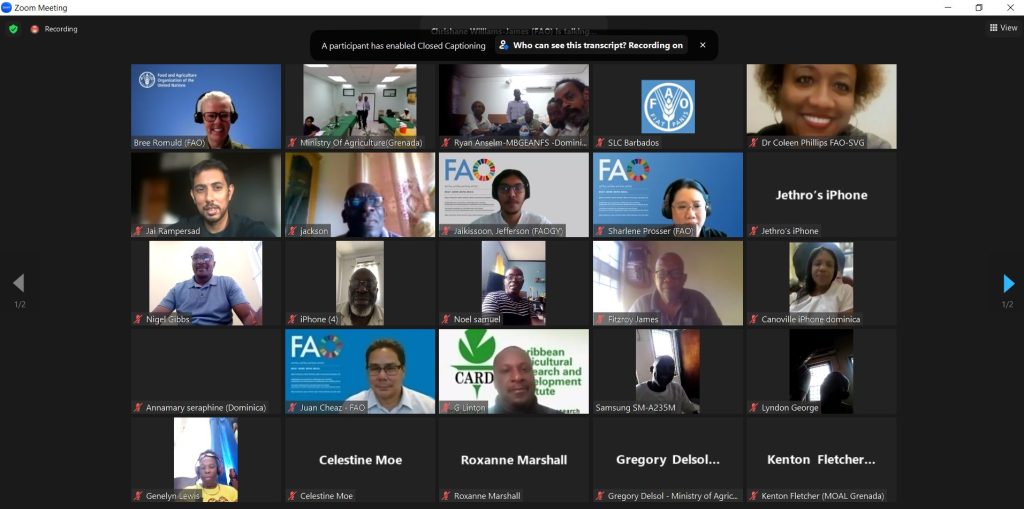Stakeholders from all three countries are working to upgrade their dasheen value chains to increase production and access to local, regional, and extra-regional markets.
February 20, 2022 – Bridgetown, Barbados – Dasheen was the focus of weeklong discussions among some 50 stakeholders including farmers, exporters, government representatives and regional partner Caribbean Agricultural Research and Development Institute (CARDI).
From February 13-17, 2023, these stakeholders from across the Commonwealth of Dominica, Grenada and St Vincent and the Grenadines engaged in an assessment of the dasheen value chain of each country, facilitated by the Caribbean Value Chain team of the Food and Agriculture Organization of the United Nations (FAO).
This weeklong Regional Dasheen Value Chain Working Session is a part of activities under the regional cluster of projects on Promoting Windward Islands Food Production and Trade Corridor through National and Regional Value Chain Development. The workshop sought to identify the challenges along the dasheen value chain and to establish an action plan for increasing the efficiency and profitability of dasheen production.
The three countries discussed the current state of their dasheen sectors, the root causes of its challenges, the steps necessary to remove the vulnerabilities faced by farmers and to ensure secure, fair, and profitable markets for dasheen. Marketing, production, cost of production, mid-supply chain, sustainability, primarily in relation to gender and climate change, were among the topics discussed.
Farmers, regional and international exporters shared the realities on the ground in dasheen production. Mr Lenson Grant, a young dasheen farmer from St Vincent and the Grenadines, shared his challenge of lacking access to a stable market for dasheen and noted that this resulted in inconsistent prices for the product. He highlighted that while he loved planting dasheen, these challenges significantly impacted his earnings.
Mr Nick Bernal, Exporter of Seasons Farm Fresh serving the Caribbean markets in Miami and New York, remarked that while the Caribbean offers high quality dasheen, there is an issue of consistent supply from the region. He added that the future of dasheen production needs to be large-scale to be profitable on the export market and that a coordinated effort in filling this gap would greatly serve the development of a regional dasheen industry.
These sentiments led to discussions on how to alleviate some of the challenges to production, marketing and supply in a holistic and collaborative way that involves all stakeholders at the government, private sector, and farm level. This would ensure a consistent and quality supply of dasheen to adequately supply the local, regional and export markets.
Ms Romuld, FAO International Value Chain Specialist remarked that success of the dasheen value chain was highly dependent on all stakeholders, including farmers, processors, exporters, various government representatives, financial institutions, and investment promotion entities among others, having a strong and effective partnership, particularly with the private sector. She emphasized that countries, especially those keen on exporting high-potential crops like dasheen, would require strong private-sector investment to ensure sustainability.
The working session concluded with a preliminary draft of an Upgrading Strategy that will define the goals for the dasheen sector in each country and identify a path to achieving these goals over the next five years. Over the coming weeks, the countries will establish national value chain teams to deliver a final version of the Strategy for implementation, guided by FAO over the next two years of the project .

